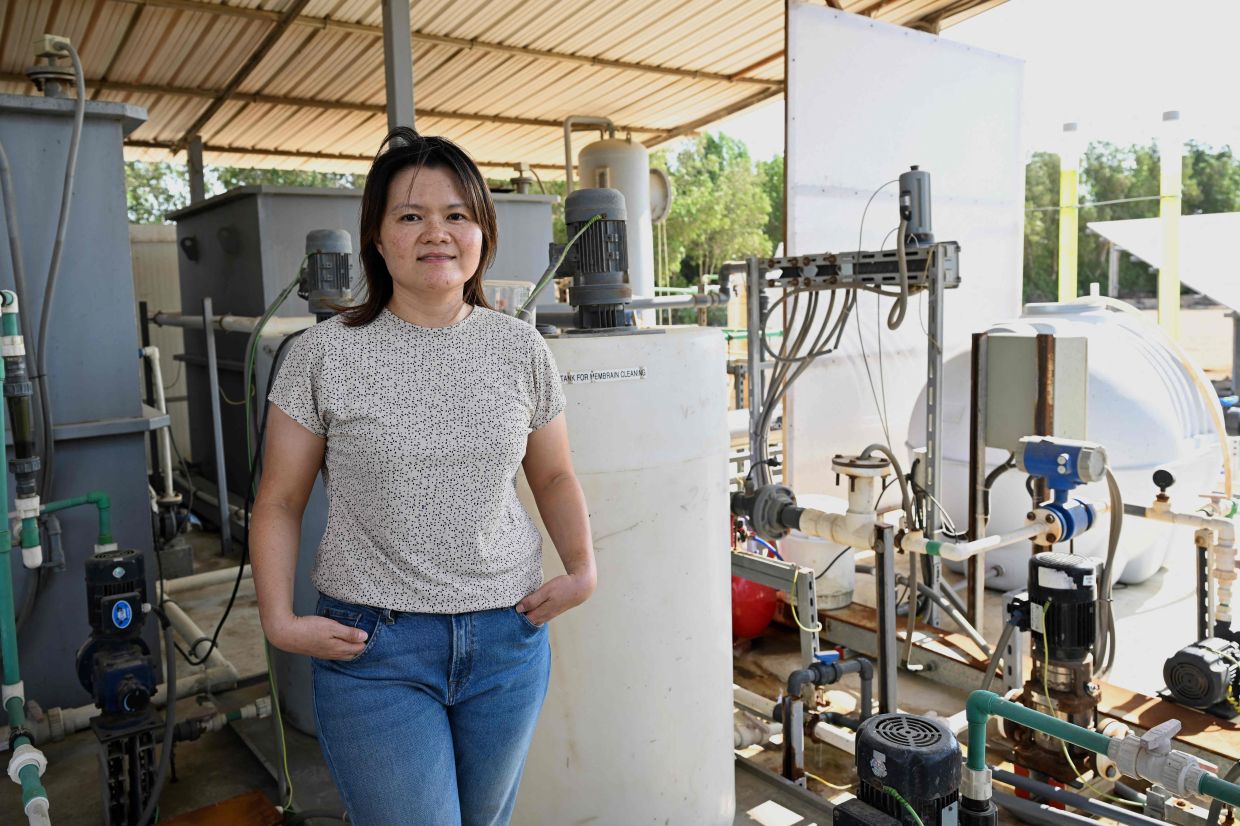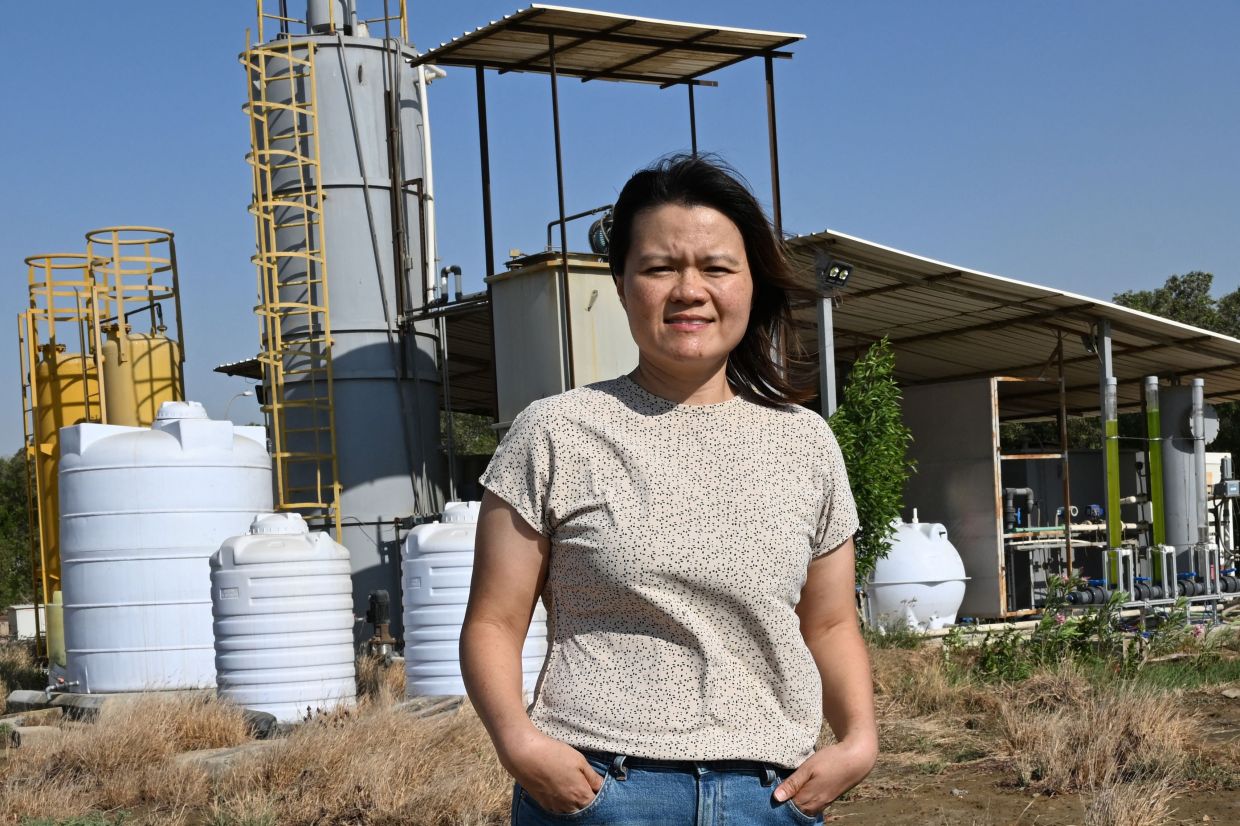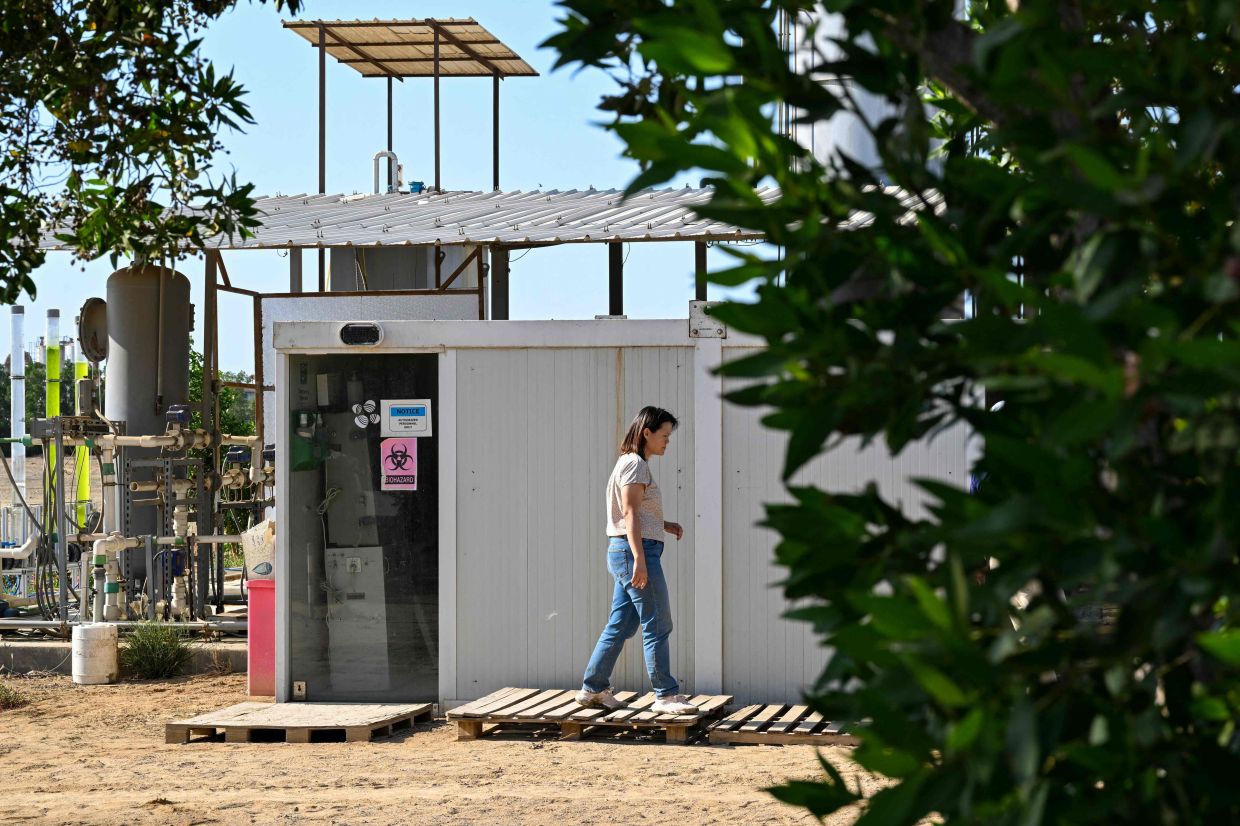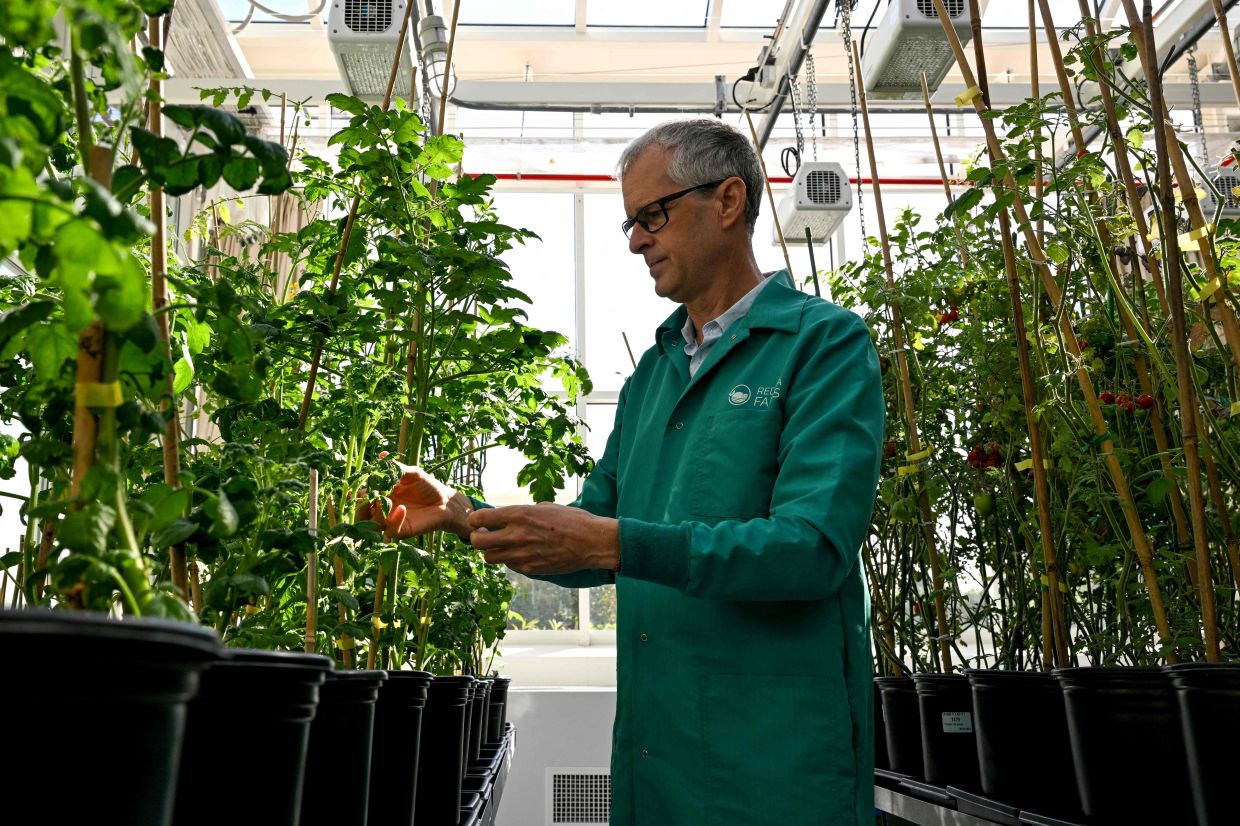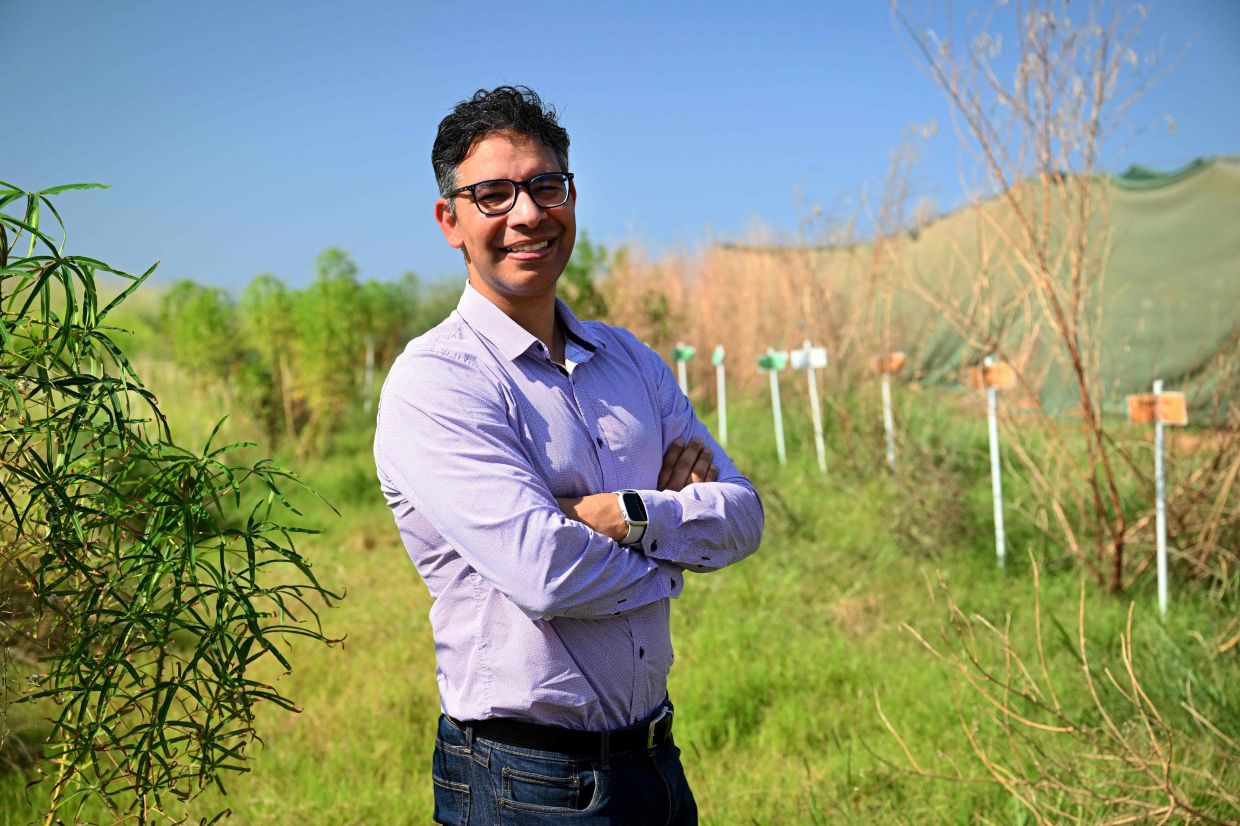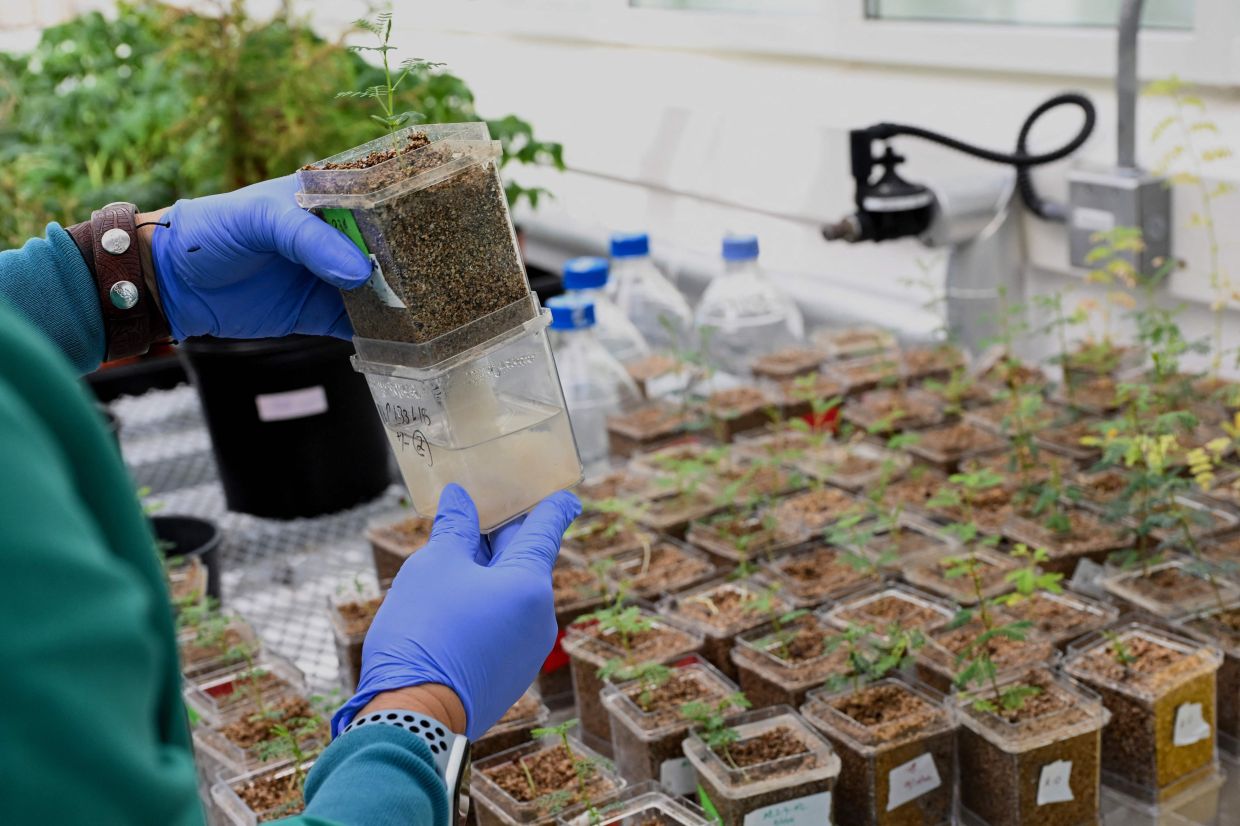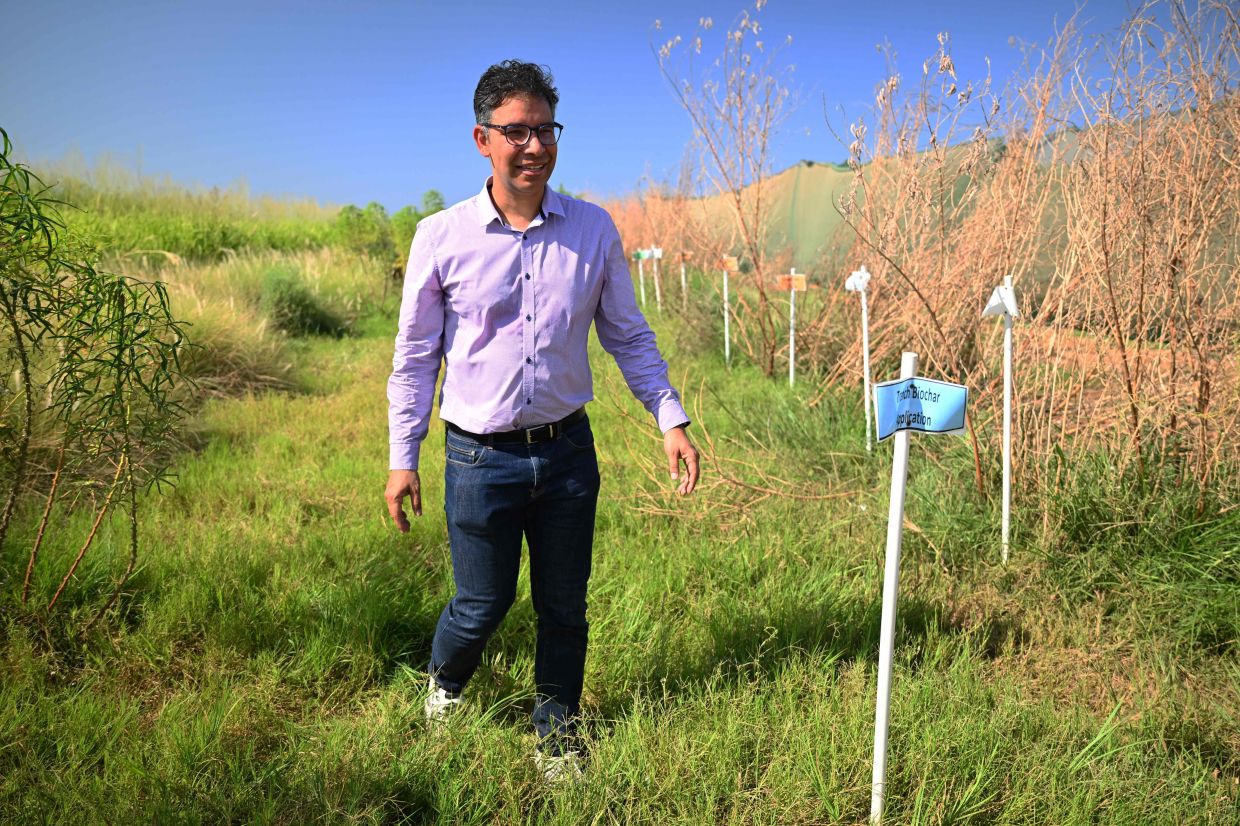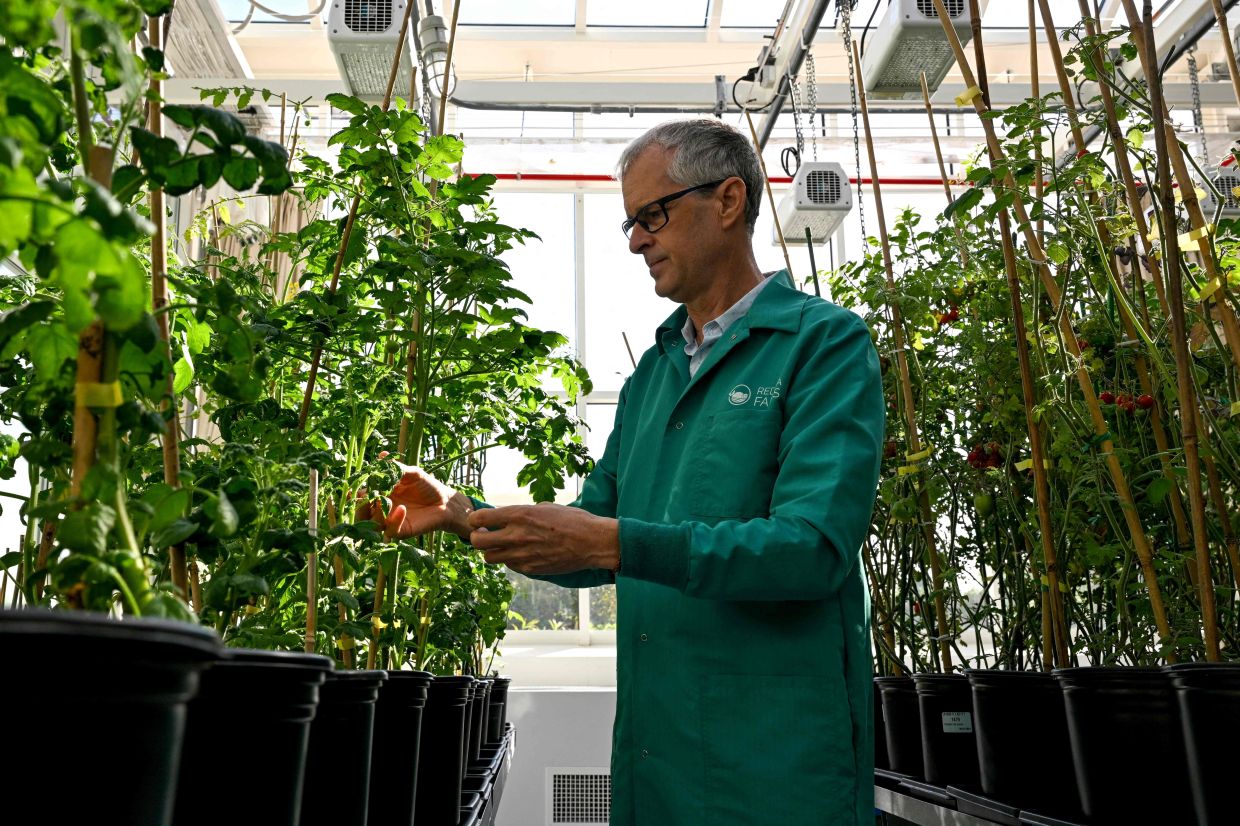Hong at a wastewater treatment plant developed by KAUST and located in the desert near Jeddah on Saudi's Red Sea coast on Nov 21, 2024. Saudi Arabia, which is hosting the United Nations' COP16 conference on drought and desertification this week – is betting on green innovation to transform its deserts, but accusations of greenwashing and doubts about technological viability highlight the challenge of turning ambitious projects into genuine climate solutions. — AFP
JEDDAH, Saudi Arabia: Saudi Arabia is investing in green innovation to transform its deserts, but accusations of greenwashing highlight the challenge of turning ambitious projects into climate solutions.
This week, Riyadh is hosting the United Nations COP16 conference on drought and desertification – topics close to home for the Gulf kingdom, whose officials have said they aim to restore 40 million hectares of degraded land.
But while the country is a major investor in climate tech, it has not abandoned its longstanding defence of oil, and critics say its gestures toward environmental friendliness offer only limited benefits.
Saudi Arabia accounts for nearly 75% of Middle East investment in climate technology start-ups worldwide, according to a 2023 report by auditor PwC.
But its investment in green tech skews towards energy, with US$363mil (RM1.62bil) ploughed into climate-friendly energy solutions – nearly 10 times as much as was invested in innovations related to food, agriculture and land-use, PwC said.
On a vast campus in the desert north of Jeddah, one project that could prove useful in the parched kingdom is using microorganisms to reduce the energy cost of treating wastewater.
The treatment facility seeks to “purify and treat wastewater in an energy-neutral or even positive way”, said Peiying Hong, the environmental science and engineering academic who oversees the facility at the King Abdullah University of Science and Technology.
The process, she said, relies on microorganisms that convert carbon into methane gas, which is collected and used to produce energy for the facility.
The filtered water from the process “can be used to grow micro algae to produce feed for livestock, or to irrigate plants and trees to combat desertification”, she added.
Sand into soil
Recycled water could prove valuable to the largely desert country with extremely limited water resources.
As part of its so-called Middle East Green Initiative, Saudi Arabia aims to eventually plant 10 billion trees, according to the project’s website, and rehabilitate more than 74 million hectares of land.
To achieve these ambitions, efficient management of water and soil resources is essential.
Himanshu Mishra, also an environmental science and engineering expert at KAUST, said his team have developed a product they believe is capable of transforming the kingdom’s desert into fertile land.
“We are transforming sand into soil,” the professor said.
The carbon-enriched compost made from chicken manure – an abundant and underused resource in Saudi Arabia – is developed a step further than normal fertiliser.
Mishra explained his innovation “acts like a sponge to retain these nutrients and water, while promoting microbial biodiversity”, which plants need to thrive.
The professor’s experimental farm has been left teeming with vegetation as a result.
Mishra explained that by selling its carbonated topsoil, made in the kingdom from local waste, Saudi Arabia could become “an exporter of both the product and its technology”.
Greenwashing?
Despite their potential, deploying such systems on a national or regional level requires financial support and political will.
“We really need venture funding and investment to demonstrate their effectiveness on a large scale,” Hong said.
But John Robinson, an investor and partner at Mazarine Ventures, says raising funds for these types of start-ups remains “extremely hard”, though some manage to attract private investors.
Meanwhile, Saudi Arabia’s ambitions have not taken away from its fierce defence of oil, as it continues to be the world’s biggest exporter of crude.
In addition to combating desertification, the kingdom is focusing on technologies such as carbon capture and hydrogen production as part of what it calls a “circular carbon economy”.
But critics have labelled these efforts greenwashing, saying they aim to allow continued investment in fossil fuels.
In May 2024, the European Centre for Democracy and Human Rights (ECDHR) said the Saudi Green Initiative “conceals the country’s ongoing reliance on fossil fuels and contempt for environmental justice behind lofty sustainability promises”.
Riyadh justifies the policy as necessary for its energy security. – AFP




